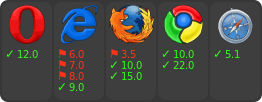| Server IP : 162.213.251.212 / Your IP : 52.14.124.154 [ Web Server : LiteSpeed System : Linux business55.web-hosting.com 4.18.0-553.lve.el8.x86_64 #1 SMP Mon May 27 15:27:34 UTC 2024 x86_64 User : allssztx ( 535) PHP Version : 8.1.31 Disable Function : NONE Domains : 1 Domains MySQL : OFF | cURL : ON | WGET : ON | Perl : ON | Python : ON | Sudo : OFF | Pkexec : OFF Directory : /proc/self/root/proc/self/root/home/allssztx/www/easybuyer/node_modules/deep-equal/ |
Upload File : |
# deep-equal
Node's `assert.deepEqual() algorithm` as a standalone module.
This module is around [5 times faster](https://gist.github.com/2790507)
than wrapping `assert.deepEqual()` in a `try/catch`.
[](https://ci.testling.com/substack/node-deep-equal)
[](https://travis-ci.org/substack/node-deep-equal)
# example
``` js
var equal = require('deep-equal');
console.dir([
equal(
{ a : [ 2, 3 ], b : [ 4 ] },
{ a : [ 2, 3 ], b : [ 4 ] }
),
equal(
{ x : 5, y : [6] },
{ x : 5, y : 6 }
)
]);
```
# methods
``` js
var deepEqual = require('deep-equal')
```
## deepEqual(a, b, opts)
Compare objects `a` and `b`, returning whether they are equal according to a
recursive equality algorithm.
If `opts.strict` is `true`, use strict equality (`===`) to compare leaf nodes.
The default is to use coercive equality (`==`) because that's how
`assert.deepEqual()` works by default.
# install
With [npm](http://npmjs.org) do:
```
npm install deep-equal
```
# test
With [npm](http://npmjs.org) do:
```
npm test
```